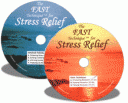I have been selling royalty free music for more than 10 years now. I receive composer submissions and demos on a daily basis. I also see what sells and what customers are requesting everyday.
I don’t often give advise to composers but thought I would post some basic observations in case it is of any use to composers looking to get into the royalty free music industry.
1. Be Prolific
If you want to make a living at selling your production music the first thing you need is a large library of music.
The composers who have large catalogs on our sites earn the most and earn very consistently. 75-300 tracks and up is considered a large library.
2. Create edits and loops with your full length tracks.
The customers on our websites love the fact that we offer not only full length tracks but edits, loops, underscores and alternate takes. You can also sell the whole package of full length track, edits for a higher price than the full length track alone.
This coupled with a large library will practically guarantee steady sales (as long as the music is top quality of course).
A typical package would be:
Full length track 2 to 3 minutes
60 second edit
30 second edit
15 second edit
2 or 3 loops.
3. Write What You Know
Professional production music composers are a very versatile lot. They can write music in many styles and can do it convincingly. However many of the demos I receive are from composers who are trying to be all things to everybody, writing in as many styles as possible with the majority of the track coming across as mediocre. We pass on these types of demos 99% of the time.
If you are an excellent New Age Music composer don’t try your hand at Nu-Metal just to fill out your catalog, write more New Age Music instead. Write the music you love to write, not what you think will sell.
4. Add Something Real
In this day of laptop studios, garageband and reason it seems that everyone is now trying their hat at being a “composer”. I may be old skool but back in the day musicians used to practice their instruments for hours everyday and went to school to study harmony and composition. Today it seems that anyone who can download some free drum loops from the web calls themselves a composer.
All this to say when you compose try adding something real to your compositions. Instead of only relying on your loop library (the one that thousands of other people are using) try adding some real guitar parts, or a weird vocal part, or a sax, get your friend to play harmonica, pick up any simple percussion instrument, even a tambourine, and record it live. Give your standard loop library composition a soul by adding something real.
5. Melody
Just like in popular music melody plays a big factor in royalty free music. Sure there are lots of instances where you want the music to sit in the background and not attract too much attention but according to our sales stats music with a good, strong, uplifting melody outsells all other types of music.
6. Holiday Music
Would you like a Christmas bonus every year in your royalty free music paycheck? Then do Christmas and holiday music in whatever style your composition skills are strongest. A hip hop version of Jingle Bells, an ozzy osbourne version of The First Noel.
This would go for all types of public domain music, a Nu-Metal version of God Bless America, a jazz version of the Star Spangled Banner, drum n bass Auld Lang Syne, etc.
Our customers just love this kind of stuff.
7. Structure
Make sure to think about the listener when you’re are putting together the structure of your royalty free music tracks.
a. Don’t have a 2 minute intro before getting to the main melody. You need to grab the listener quickly, get to the point as soon as possible (within reason of course).
b. Give them an ending. No fades. Give them a proper ending with a chord and cymbals that ring out. This is very important for the ends of commercials and radio spots.
c. Give them a B section, also known as a bridge. You can do the same thing with a breakdown if it is dance music. You need to give the customer some variety in the track, something to play with in editing.
Hope this helps. Let me know what you think.
I’ll be posting more tips for royalty free music composers in the coming weeks.
-Mark

